|
|
 |

|
 |
Dusted Features
Brandon Bussolini spent 2006 waiting for some marquee albums to drop. He wasn't disappointed.
|
|
|
 |
Waiting to Exhale (Brandon Bussolini)
2006 was a year of anticipation, and waiting on the release of the Excepter, Scott Walker, and Scritti Politti albums listed below did a great deal to ease my post-undergrad anxiety and mold my blog-trawling habits into something of an endless information feedback loop. 2006 was also my first full year reviewing records, so while these aren’t necessarily my most-listened-to records, they’ve been the most challenging to wrap my mind around.
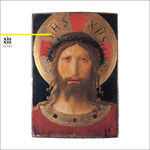
Xiu Xiu — The Air Force (5RC)
Don’t tell Jaime Stewart et Co. that they’ve been making the same record since A Promise. The Air Force freely admits this in a way that seems like neither an apology nor an attempt to feebly break into new territory. Le Xiu goes up against the teleology of Rock and gets done a great disservice by the bloggers that habitually post each album’s second and third tracks without really recognizing that they’ve been consistently spewing forth a particularly thoughtful, indigenized form of suburban music that has remained very much of the moment for the last whatever years. In this sense, no band on my list deserves a proper critical write-up more than San Jose’s Xiu Xiu. Le Xiu’s master narrative holds that each album (barring La Foret) is the band’s most pop to date; The Air Force feels less like a move away from the band’s bramblier niches and more like a deliberate folding back on it. Structure-wise the album closes the loop begun with A Promise, but while intervening albums’ opening tracks were built as slight and drafty as haunted houses seem in daylight, “Buzz Saw”’s stupidly precise, irregular snare hits are determined to nail down this album’s refined, opaque shape. The syntax here is polished to an ungodly shine (e.g. “Bishop, CA,” whose sea-bright gleam cuts through the turgid bits of predecessor La Foret), and even the noisiest bits of the album seem purposeful and concise, like the new Sonic Youth album. “Wigmaster”’s hoarse incantation feels like hangliding onto the last scene in Goonies: displaced, lonely, offering adventure in reverse.
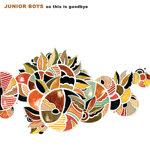
Junior Boys — So This Is Goodbye (Domino)
I don’t expect much from Domino, so this one flew under my radar until just a few months ago. This may be the '06 release I listened to most or it may be the one I’ve felt most fully absorbed by—K-Punk’s dissertation on the album sorts this out systematically and exhaustively. If this hadn’t come into my life, the Hot Chip record probably would have made it here. No disrespect to those dudes, but where their melodies can seem a bit shoehorned into just-this-side of Postal Service glitchy preciousness, So This Is Goodbye has the gnarly, hollowed-out form of something entirely external: the serene, inhuman beauty of an oil refinery at night.

Scritti Politti — White Bread Black Beer (Nonesuch)
My life isn’t filled with moments of great decision, but rather confused and weirdly inverted affects that, years later, yield up some crucial information. One of these moments was running across Cupid & Psyche ’85 in a French médiathèque. The artwork drew me in, and the music—more accurately, the singing—didn’t so much disappoint me as make me acutely embarrassed. It seems weirdly appropriate that my first experience with That Voice would be an inarticulate one. Something about the self-negating verbal gestures of the clean-cut androgyne singer, the way everything on the album—with the exception of the thundering drums on “Absolute”—seemed to be only slightly more substantial than Green’s cooing breath. 21 years later, WBBB is even less anchored, a pure multiplicity of pro-tooled voices; it’s an album that, finally, isn’t so much about the hip-hop Green holds so close to his heart as it is in that music—whether he’s coming off as third-album-era VU (“Snow in the Sun”) or Paul McCartney ghostwriting for The Pop Group (“Dr Abernathy”). Of course, I’m overextending: it’s as simple and troubling as anything Scritti’s ever done, and still kind of weird to listen to around your friends (unless your friends are Simon Reynolds or Sasha Frere Jones or whoever). The blog posts this album inspired alone are enough to give it a spot on my list.
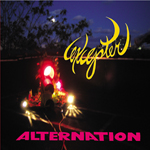
Excepter — Alternation (5RC)
And, while I’m at it, I might as well incorporate John Fell Ryan’s excellent submission to the Listed feature—it’s of a piece with Alternation in the sense that everything it does is hidden in plain view (Bo Diddley? Oh, right). Until this album came along, the one Excepter jam that consistently stuck in the pit of my teeth was “BB+B” from their overexposed mutant house screed Self-Destruction, which sounded like TG’s “Still Walking” was onto some LFO shit. The tracks on this album are among the group’s earliest and most pop-coherent, though they’re no less entropic (e.g., “The ‘Rock’ Stepper”’s stable beat gives room for tons of queasy slippages).
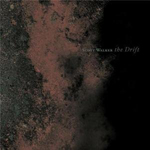
Scott Walker — The Drift (4AD)
I’d like to think that had I found Tilt around the time I was desperately searching it out (maybe two years ago?), this album would have bowled me over, like, immediately. As it happens, I had only Scott 4’s baroque folds and a revelatory stoned listen to Xenakis’ La Légende D’Eer to serve as guideposts. I have to admit, though, that at the time I write this, this album has probably yielded less than any other album on this list, and its inclusion here is partially based on what I anticipate getting from it, partially based on my admiration for its cold-ass formalism. Mike Powell’s review of The Drift has thoroughly pointed out the shortcomings of this approach, but even given the diminishing returns of discomfort for the sake of discomfort, it’s one that, y’know, I’m kind of okay with. I can say, however, that the several times when I have made it to the other end of the album’s lead-scented tundra, that “psst-psst-psst-psst” bit hasn’t failed to sound like the Greatest Thing Ever.

Joanna Newsom — Ys (Drag City)
“Sustained,” says Sasha Frere-Jones. “Music is back,” says Jim O’Rourke. The authenticity tale Arthur tells is compelling and all, but isn’t the insistence on analog, and the inevitable digital mediation, just another way of saying you’re listening as much to what’s there as what isn’t there? I am way under qualified to weigh in on the hauntology tip, but this manages to be both familiar and oblique, which is another way of saying that it’s pop. Tidal pop.
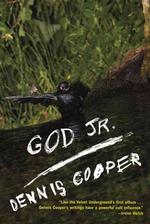
Dennis Cooper — God Jr.
No writer writes in and through music better than Dennis Cooper. To turn one of DC’s own compliments back onto the man himself, no contemporary writer can write a book with as many great sentences as God Jr. The sentences here go straight for your nervous system, and understanding never quite catches up with affect. Every Cooper book embodies a logic of sensation that’s both totally rigorous and completely dynamic: even far afield from the subject matter with which he’s most associated, Cooper suggests a real possibility for living life differently. The fact that the term “literary” is used unproblematically to describe the Decemberists is proof positive that American postmodernism still takes itself way too seriously. If I were you, I’d buy 5 copies of this instead of picking up that new Dave Eggers book and distribute it to friends and younger siblings. I’d also stop listening to NPR.
By Brandon Bussolini
|







